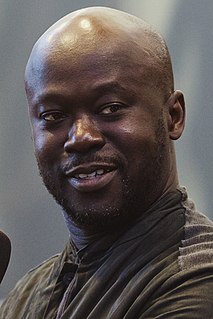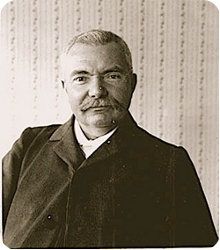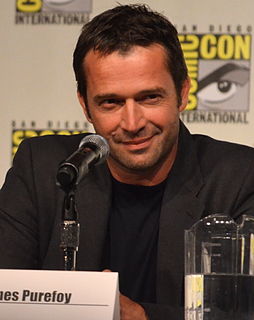A Quote by Sigmund Freud
A state of consciousness is characteristically very transitory; an idea that is conscious now is no longer so a moment later, although it can become so again under certain conditions that are easily brought about.
Related Quotes
In a way, I feel I have enough tools and knowledge now that when I build it has a very specific agency that's very conscious. It's no longer speculative; it's really constructed. I'm very interested in how that consciousness, about how I am producing, is working within different conditions. It's like growing up.
The idea of the state is, or should be, a very limited, prescribed idea. The state looks after the defense of the realm, and other matters - raising revenue to pay for things which are for all of us, and so on. That idea has turned turtle now. The state isn't any longer perceived as an institution which exists to serve us.
I do not deny certain kinds of biological differences. But I always ask under what conditions, under what discursive and institutional conditions, do certain biological differences - and they're not necessary ones, given the anomalous state of bodies in the world - become the salient characteristics of sex.
Although you can find certain differences among the Buddhist philosophical schools about how the universe came into being, the basic common question addressed is how the two fundamental principles-external matter and internal mind or consciousness-although distinct, affect one another. External causes and conditions are responsible for certain of our experiences of happiness and suffering. Yet we find that it is principally our own feelings, our thoughts and our emotions, that really determine whether we are going to suffer or be happy.
There is only one thing in your life YOU can be sure of. That one thing is this moment, now. The last moment has gone forever. The next moment has not come. YOU can become fully conscious only when you are living in the moment. To begin to live in the moment you have to know it exists and understand it. To understand it you have to observe it in relation to yourself and in relation to life. When you understand it, when you become conscious, you will see it is all that exists. To see this is to glimpse reality.
The popular and scientific views of "race" no longer coincide. The word "race," as applied scientifically to human groupings, has lost any sharpness of meaning. To-day it is hardly definable in scientific terms, except as an abstract concept which may, under certain conditions, very different from those now prevalent, have been realized approximately in the past and might, under certain other but equally different conditions, be realized in the distant future.
When there exists anywhere a state of suffering, a wrong, a condition of affairs that men of feeling deplore and that troubles the conscience of the upright, to become resigned to it is wicked. Although the evil flaunts itself before our eyes, and no remedy is in sight, we must go and seek a remedy. In the creation of the God of Justice, evil can be but a transitory state.
Acting is a way to escape who you are for a short period of time. It doesn't happen all the time , but every now and then, the sensation of being 'other' is very profound. You get this moment where you are no longer yourself. You lose consciousness of the crew or the audience... it's a thrilling moment. And even quite spiritual.
A letter is paradoxically the most revealing and the most deceptive of confessional revelations. We all have our inconsistencies, prejudices, irrationalities which, although strongly felt at the time, may be transitory. A letter captures the mood of the moment. The transitory becomes immutably fixed, part of the evidence for the prosecution or the defence.
Confusion conditions activity, which conditions consciousness, which conditions embodied personality, which conditions sensory experiences, which conditions impact, which conditions mood, which conditions craving, which conditions clinging, which conditions becoming, which conditions birth, which conditions aging and death.
About three years went by and I had become exhausted - really at the end of my rope almost - and I thought I couldn't last much longer... and at the very end, when I thought of giving it all up, suddenly I thought it was good. I knew that I now understood something about it and I painted it as easily as you can imagine.
It is what makes conscious of the conditions and laws of observing which applied in this manner become a theme on its own. The activity of consciousness depending on the way the work itself proceeds, becomes the subject of my attention this way and it is precisely because of this voyeuristic attitude toward the own observation and experience of the subject that the conscious analytic dimension in the work shows.
Now here is a key: you want to make it real and present in the realm of your consciousness. You don't say "I'm going to do such and such" - it already has happened. Now, is consciousness real? It exists and it is very powerful. The idea is to have this mesh between your consciousness - your visualization - and the so-called material world.
To become conscious of God, to become God's consciousness, to become God, to be God and to be beyond God, God being beyond God, God having an existence separate from the creation, to be that, to merge with that, to lose one's self and find one's self endlessly again and again in that is self-realization.






































